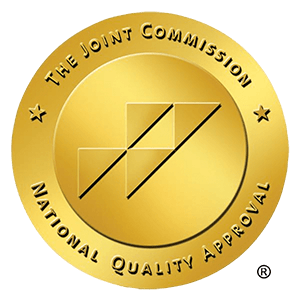What Are Eating Disorders?
Eating disorders are serious and sometimes fatal illnesses that cause severe disturbances in an individual’s eating behaviors, impacting more than 30 million people in the United States alone. These all too often misunderstood disorders do not discriminate based on age, gender, race, or sexuality. Anyone can be impacted by an eating disorder, yet only 10% of those affected will seek professional treatment. Every 52 minutes, someone in the US dies as a direct result of their eating disorder.
You can’t tell if someone has an eating disorder by looking at them. Less than 6% of individuals with eating disorders are medically underweight.
Eating Disorders are not a choice, they are a medical illness. Eating disorders are influenced by a combination of genetic, biological, social, psychological and environmental factors.
Eating disorders are serious, and can be deadly. Currently, eating disorders are the second most fatal mental illness, second only to Opioid Use Disorder.
Common Types of Eating Disorders and Their Symptoms
*Note: Many people suffering with eating disorders or disordered eating experience overlapping symptoms of common diagnosis.
Anorexia
- Extremely restricted eating and/or excessive exercise, often paired with distorted body and self-image.
- Intense fear of weight gain causing a significant preoccupation with food and weight.
- Subtypes include restrictive subtype, and binge-purge subtype.
Bulimia
- Recurrent episodes of consuming unusually large amounts of food paired with a feeling of lack of control.
- Compensatory behaviors after binging episodes (may include forced vomiting, excessive exercise, restriction, laxatives and/or diuretics or a combination of behaviors).
Binge Eating Disorder
- Recurrent episodes of consuming large amounts of food, often eating rapidly, past the point of comfortable fullness, and in secret.
- Those with BED often feel out of control, distressed, ashamed, or guilty about their eating behaviors.
ARFID (Avoidant Restrictive Food Intake Disorder)
- Dramatic limitation of the type or amount of food eaten. Unlike those with Anorexia, individuals with ARFID do not have a fear of gaining weight or a distorted body image.
- Range of preferred foods becomes progressively more limited, and significantly impacts the individual’s ability to nourish themselves. behaviors).
Co-Morbidity
According to the National Institute of Mental Health, eating disorders have one of the highest co- morbidity rates of mental health disorders. In a NIMH survey, more than half (56.2%) of respondents with anorexia nervosa, 94.5% with bulimia nervosa, and 78.9% with binge eating disorder met criteria for at least one other core DSM-IV disorder.
Core Recovery’s Dietary Program
We are Anti-Diet Culture. The research is clear, diets do not work, and diet culture is one of the leading contributors to an individual developing an eating disorder. We reject the false idea that the key to health and happiness is a number on the scale.
We are Health at Every Size aligned. HAES is a public health approach, supported by the latest scientific research, that acknowledges and celebrates body diversity while promoting positive health outcomes that are produced independent of size and weight.
We work within an All Foods Fit framework. The All Foods Fit philosophy seeks to dismantle the categorization of “good” and “bad” foods. When we remove the concept of morality from food, we can move towards nourishing our bodies in an intuitive, sustainable, and joyful way.





 In CA By O360®
In CA By O360®